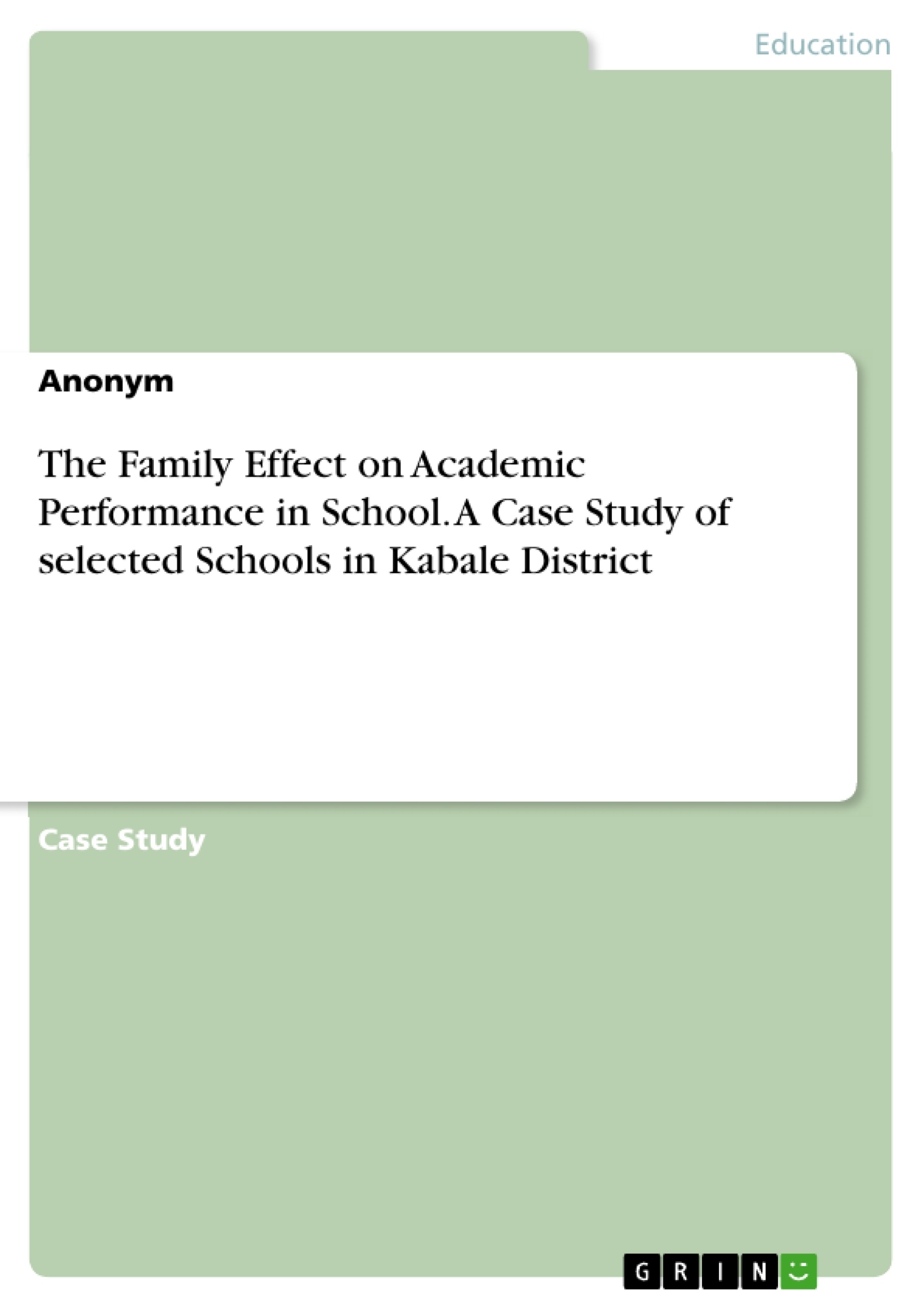The study was carried out in selected schools of Kabale district to determine the effect of family background on the academic performance of students in secondary schools. Both random and purposive sampling techniques were used to select respondents. Primary data was collected using observation, interview and questionnaires whereas secondary data was collected from the statistical records from the education department.
Table of Contents
- CHAPTER ONE.
- Introduction.
- Reasons that have caused poor academic performance in secondary schools.
- CHAPTER TWO
- The influence of family background on the students' academic performance..
- CHAPTER THREE.
- The education level of parents.
- The effect of income of parents...........
- CHAPTER FOUR
- National Statistics
- CHAPTER FIVE
- Measures to improve academic performance.....
- CHAPTER SIX..
- Recommendations and discusssions.
- References.
Objectives and Key Themes
This study explores the connection between family background and academic performance in secondary schools in Kabale district, Uganda. The research aims to identify key factors within the family structure that influence a student's academic success.
- The impact of family background on academic performance.
- The role of parental education and income on student achievement.
- The influence of family size and resources on student development.
- The importance of education for national development.
- Strategies to improve academic performance in secondary schools.
Chapter Summaries
Chapter One provides an introduction to the research, outlining the problem of poor academic performance in secondary schools and its potential connection to family background. It discusses various factors within the family environment that can contribute to academic challenges, such as economic hardship, large family size, and limited resources. Chapter Two delves deeper into the influence of family background on students' academic performance, examining how parental education and income can shape educational opportunities both at home and at school. Chapter Three specifically examines the effect of parental education levels and income on student achievement, highlighting the importance of these factors for educational success.
Keywords
This study focuses on the impact of family background on academic performance in secondary schools. Key themes include family size, parental education, income, educational resources, national development, and strategies for improving academic performance. The research utilizes both quantitative and qualitative methods to analyze the relationship between these variables and their effect on student achievement.
- Citation du texte
- Anonym (Auteur), 2017, The Family Effect on Academic Performance in School. A Case Study of selected Schools in Kabale District, Munich, GRIN Verlag, https://www.grin.com/document/384998



